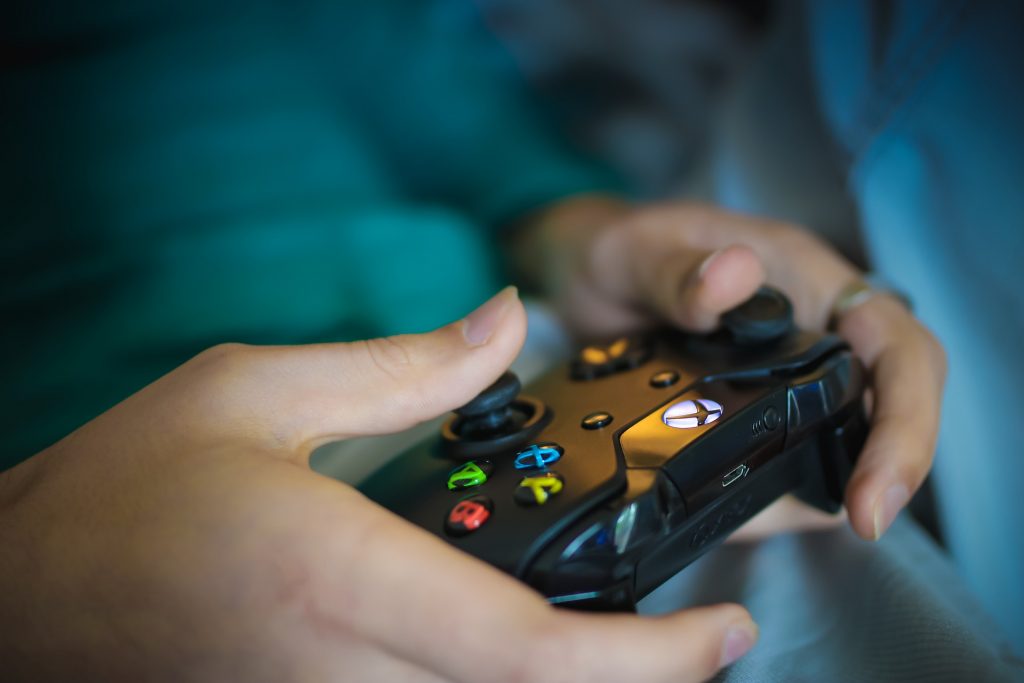 Playing a video game can be a fun, easy way to relax, but what happens when you can’t quite get yourself to stop? Leisure time has its limit, but for some who play video games, that limit never comes. Now, the World Health Organization is recognizing the problem, according to anonymous sources (“Video Game Addiction To Be Recognized As Mental Disorder: Here’s What To Do If You Think You Have It,” 2017).
Playing a video game can be a fun, easy way to relax, but what happens when you can’t quite get yourself to stop? Leisure time has its limit, but for some who play video games, that limit never comes. Now, the World Health Organization is recognizing the problem, according to anonymous sources (“Video Game Addiction To Be Recognized As Mental Disorder: Here’s What To Do If You Think You Have It,” 2017).
“Gaming disorder” may soon be classified as a mental health condition by WHO, which could potentially lead to more gamers being “treated” for the illness. The change will supposedly be made in the 11th edition of the International Classification of Diseases later this year. These reports come from sources who have seen rough drafts of the document.
According to the draft, an individual may have gaming disorder if he or she prioritizes “gaming over all other life interests.” In addition, the subject may continue to play, even if his or her mental health is at risk, not limited to proper sleep and nutrition.
Am I Addicted to Gaming?
One Forbes contributor recently wrote a piece describing how suspected gaming addicts can potentially diagnose the problem. As Bruce Y. Lee writes, the process may be as simple as turning to CAGE Questions, which are frequently used to detect alcohol addiction (“Do You Have ‘Gaming Disorder,’ A Newly Recognized Mental Health Condition?,” 2017).
- Have you ever felt you should [C]ut down on your gaming?
- Have people [A]nnoyed you by criticizing your gaming?
- Have you ever felt bad or [G]uilty about your gaming?
- Are video games usually the first thing you think about in the morning when you wake up (Eye opener)?
“Also, check whether your gaming has increased over time and whether there have been accompanying changes in your mood (e.g., becoming moodier, crankier, more irritable, or depressed) and other habits (e.g., you no longer go outside as often or use the toilet),” Lee writes. “Even if you don’t suspect that you have a problem, trying to cut down on any of your habits for a moment is a good test of how much control you have of your own life.”
Tips for Gaming Addiction
Even if you aren’t a full-fledged addict, there are a few ways you can cut back on gaming for the sake of your health and relationships. Consider putting a timer on yourself whenever you play a video game to limit the amount of time you dedicate to it (“Five tips on beating video game addiction,” 2013).
Think about using cheat codes on a game if it’s becoming too addicting. By making it less challenging, you may be less inclined to go back to it for entertainment.
Finally, don’t be afraid to consult a medical professional if you have questions about gaming addiction and how to combat it.
References
Johnson, Daniel. Five tips on beating video game addiction. Retrieved January 9, 2018, from http://www.telegraph.co.uk/technology/video-games/10451600/Five-tips-on-beating-video-game-addiction.html
Lee, Bruce Y. Do You Have ‘Gaming Disorder,’ A Newly Recognized Mental Health Condition? Retrieved January 9, 2018, from https://www.forbes.com/sites/brucelee/2017/12/24/do-you-have-video-gaming-disorder-a-newly-recognized-mental-health-condition/#2a44197a316d
Mamiit, Aaron. Video Game Addiction To Be Recognized As Mental Disorder: Here’s What To Do If You Think You Have It. Retrieved January 9, 2018, from http://www.techtimes.com/articles/217627/20171227/video-game-addiction-to-be-recognized-as-mental-disorder-heres-what-to-do-if-you-think-you-have-it.htm
